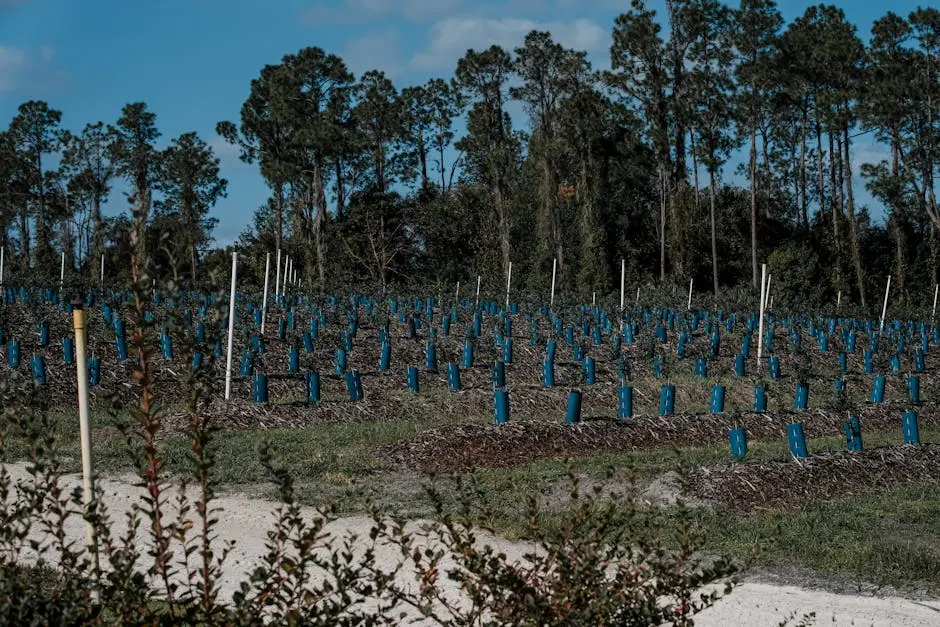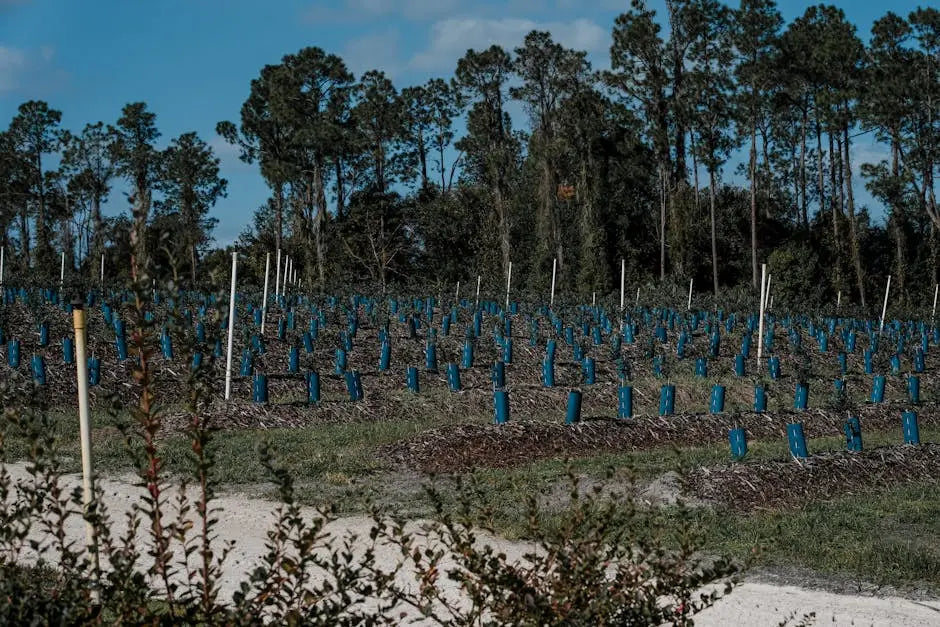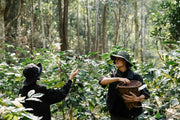The growing awareness of environmental sustainability has led to a surge in interest around regenerative coffee farming. This innovative agricultural practice not only enhances coffee quality but also promotes eco-friendly brewing techniques. In this blog, we will explore how regenerative coffee farming supports a more sustainable coffee industry, from soil health to water conservation, and how consumers can make a positive impact through their coffee choices.

Understanding Regenerative Coffee Farming
Regenerative coffee farming is fundamentally about restoring the land through holistic agricultural practices. This method emphasizes not only the quality of the coffee produced but also the health of the ecosystems in which it is grown. By rotating crops, minimizing soil disturbance, and integrating animal husbandry, farmers can create a dynamic environment that fosters biodiversity and enhances nutrient cycling.
At its core, regenerative coffee farming seeks to address the challenges that conventional agriculture poses—such as soil degradation and reduced biodiversity. Farmers who adopt this sustainable approach are typically driven by a commitment to environmental stewardship and a desire to improve the resilience of their farms against climate change.
As we delve deeper into this topic, we uncover the practices that empower farmers to move away from harmful monoculture systems. This not only allows for a diverse range of coffee varieties but also better adapts to local climate conditions. In essence, regenerative farming presents a viable alternative that champions long-term ecological restoration.
The Benefits of Regenerative Practices for Soil Health
One of the cornerstones of regenerative coffee farming is the emphasis on enhancing soil health. Healthy soil is the foundation that sustains plant life, yet conventional farming often leads to nutrient depletion and erosion. By adopting practices like cover cropping and composting, farmers can rejuvenate their soils, fostering a rich ecosystem that promotes microbial diversity.
Moreover, regenerative practices encourage the natural processes of soil formation and nutrient cycling. For instance, by reducing tillage and utilizing perennial crops, farmers can help retain moisture and prevent soil erosion, effectively creating a robust buffer against extreme weather events. This not only supports the health of coffee plants but enhances overall farm sustainability.
Through these regenerative methods, farmers witness increased soil fertility, which directly translates to better coffee yields and flavors. The connection between healthy soil and high-quality coffee cannot be overstated; when the soil thrives, so does the coffee, leading to a richer and more complex cup that coffee enthusiasts appreciate.
Ultimately, the commitment to soil health within regenerative coffee farming creates a ripple effect, benefiting local ecosystems and farming communities alike. This interconnectedness elucidates the importance of maintaining biodiversity, not just for today but for future generations.
Water Conservation Techniques in Regenerative Coffee Farming
Water conservation is a critical component of regenerative coffee farming, particularly in regions prone to drought or water scarcity. Innovative techniques such as agroforestry and rainwater harvesting significantly contribute to sustainable water management practices. By integrating shade trees into coffee farms, farmers not only provide necessary cover for coffee plants but also create a natural reservoir that retains moisture.
Traditional coffee farming often leads to excessive water usage, causing waterways to dry up. In contrast, regenerative practices prioritize water retention methods, allowing farmers to draw from natural systems rather than depleting local resources. Techniques such as swales and contour planting are instrumental in managing runoff and encouraging groundwater recharge.
By practicing these water management strategies, farmers can maintain healthy coffee crops while ensuring that precious water resources are conserved. This environmentally conscious approach not only secures the farmers’ livelihoods but also enhances the resilience of local ecosystems—a win-win scenario for agriculture and the environment.
How Regenerative Coffee Supports Biodiversity
Biodiversity lies at the heart of regenerative coffee farming. Encouraging a variety of species within coffee plantations helps create a balanced ecosystem that can withstand pests and diseases. This diversity acts as a natural defense system, allowing farmers to rely less on chemical inputs for pest control.
Through agroecological practices, such as intercropping and polyculture, regenerative coffee farming promotes a habitat where flora and fauna can thrive together. By fostering relationships between different species, these practices improve pollination, enhance soil structure, and create a more resilient agricultural landscape.
Notably, this biodiversity has benefits that extend beyond the farm itself. Healthy ecosystems contribute to the stabilization of the local climate, promoting resilience against extreme weather fluctuations. Thus, embracing biodiversity in coffee farming is not merely a sustainable choice; it’s essential for the long-term viability of the entire agricultural system.
The Role of Local Communities in Regenerative Coffee Practices
Local communities play a pivotal role in the success of regenerative coffee farming. Their intimate knowledge of land and climate allows them to implement practices that are not only sustainable but also culturally relevant. Engaging communities in the planning and execution of these practices fosters a sense of ownership and pride among farmers.
Moreover, cooperative models of coffee farming have emerged as a powerful means to streamline efforts towards ecological sustainability. When farmers work together, not only do they share resources, but they also exchange knowledge on best practices, leading to improved methods that benefit the entire community.
Supporting local communities in regenerative farming initiatives can amplify the positive impacts on social and economic well-being. As communities thrive, they possess the capability to improve livelihoods while contributing to environmental conservation, thus creating a cycle of sustainability that benefits each participant.
Choosing Eco-Friendly Brews: A Guide for Consumers
For consumers passionate about making informed decisions, choosing coffee produced through regenerative practices is a step towards supporting sustainability. By selecting brands that prioritize regenerative coffee farming, consumers can directly contribute to the well-being of farmers and the preservation of ecosystems.
Many certifications, such as Fair Trade and Rainforest Alliance, can guide consumers to make responsible choices. However, it’s crucial to delve deeper; understanding the specific practices utilized by brands enables consumers to align their values with their purchasing power. This newfound knowledge encourages conscious consumption and promotes an ethical coffee industry.
Additionally, exploring local markets or directly sourcing from regenerative coffee farms can further enhance this eco-friendly journey. Meeting the farmers and hearing their stories can deepen the appreciation for the coffee you drink, transforming an everyday ritual into a meaningful connection with the land and its caretakers.
Ultimately, informed consumer choices can drive demand for sustainable practices in the coffee industry, urging more farmers to adopt regenerative methods. As consumers become advocates for change, we take significant strides towards a greener planet, one cup of coffee at a time.
The Future of Coffee: A Sustainable Choice
Embracing regenerative coffee farming practices not only benefits the environment but also enhances the quality of the coffee we drink. By supporting farmers who prioritize sustainability, consumers can play a crucial role in fostering ecological balance and promoting a healthier planet. Together, we can pave the way for a more sustainable coffee industry, one cup at a time.








